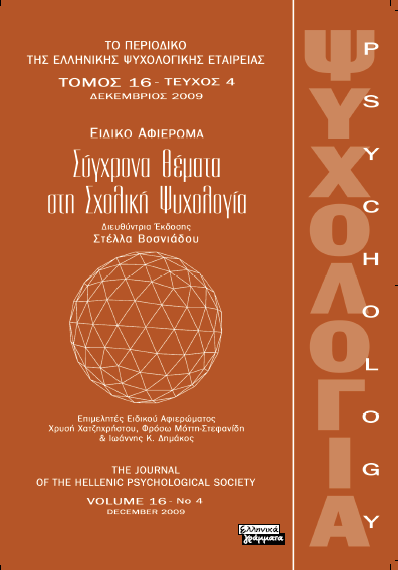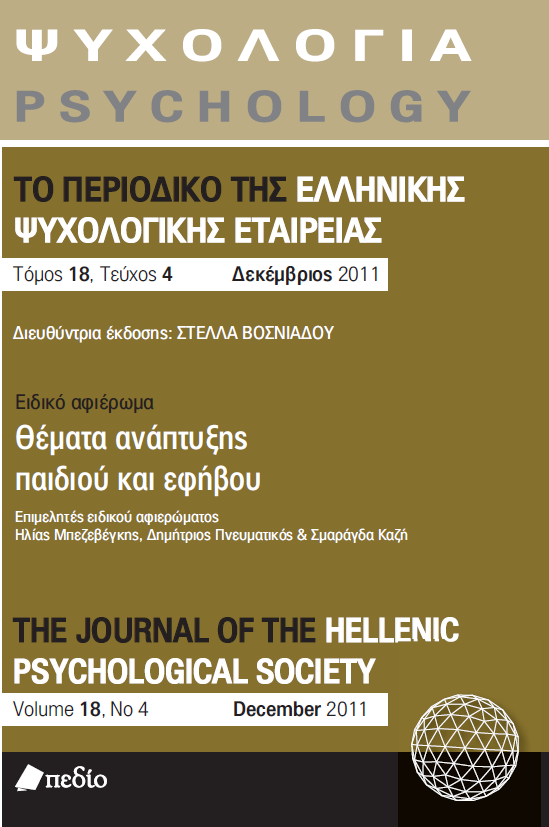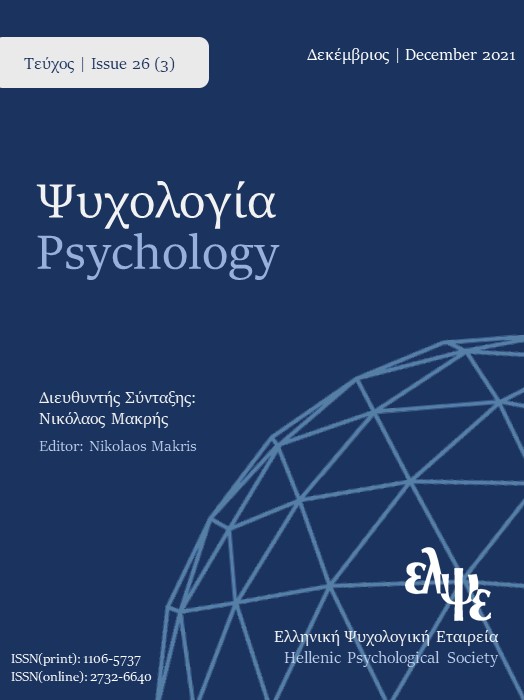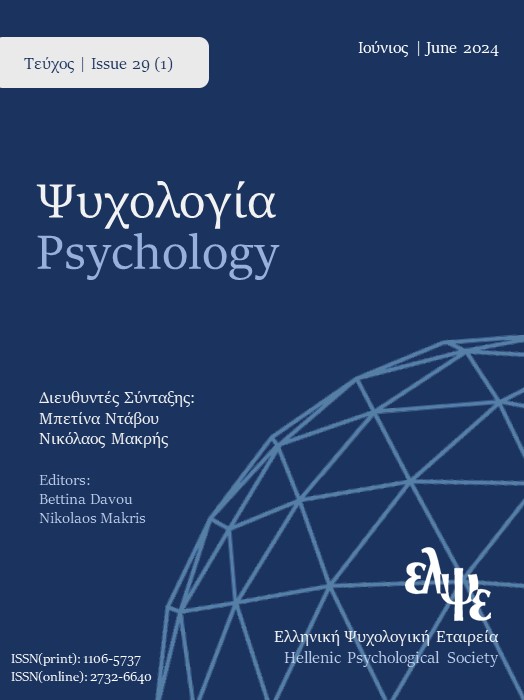Epistemological beliefs: An investigation of their structure and their relationship with school achievement in high school students

Abstract
The term epistemological beliefs (EBs) refers to the nature of students’ beliefs
of knowledge and learning, these are related to the learning process through their effect on academic performance, motivation and self-regulation. Schommer has argued that the concept is multidimensional and consists of four distinct dimensions, the structure of knowledge, the stability of knowledge, the ability of learning and the speed of learning. The aim of the present study is to explore the structure of epistemic beliefs in a Greek sample, according to the theoretical model of Schommer, and how these beliefs are related to academic performance and other demographic and non demographic variables. The sample was composed by 470 students attending the three gradesof upper high school. The students responded to the Epistemological Belief Questionnaire (Schommer, 2000). The results showed that the structure of the epistemological beliefs is in accordance to Schommer’s theoretical model as regards the four dimensions and that the dimension structure of knowledge was the strongest factor. Low reliability rates lead to doubts regarding Schommer’s conceptual model. Moreover, it was found that ability of learning and stability of knowledge significantly contribute to the prediction ofacademic performance and that higher grades are related to sophisticated EBs. It was also found that girls
have more sophisticated EBs than boys in the speed of learning, and that older students have more sophisticated EBs in the stability of knowledge. Similar findings were found for the students of the theoretical study direction in terms of the stability and the structure of knowledge.
Article Details
- How to Cite
-
Πολυχρόνη Φ. (2020). Epistemological beliefs: An investigation of their structure and their relationship with school achievement in high school students. Psychology: The Journal of the Hellenic Psychological Society, 16(4), 321–341. https://doi.org/10.12681/psy_hps.23820
- Issue
- Vol. 16 No. 4 (2009)
- Section
- SPECIAL SECTION

This work is licensed under a Creative Commons Attribution-ShareAlike 4.0 International License.
The journal PSYCHOLOGY adopts a Platinum open-access policy. Submission, processing or publication costs are waived by the Hellenic Psychological Society. Papers published in the journal PSYCHOLOGY are licensed under a 'Creative Commons Attribution-ShareAlike 4.0 International' licence. The authors reserve the copyright of their work and grant the journal the right of its first publication. Third-party licensees are allowed to use the published paper immediately after publication as they wish, provided they retain the defined by the license copyright formalities, regarding the reference to its author(s) and its initial publication in the journal PSYCHOLOGY. Moreover, any adjusted work should be shared under the same reuse rights, so with the same CC license.





